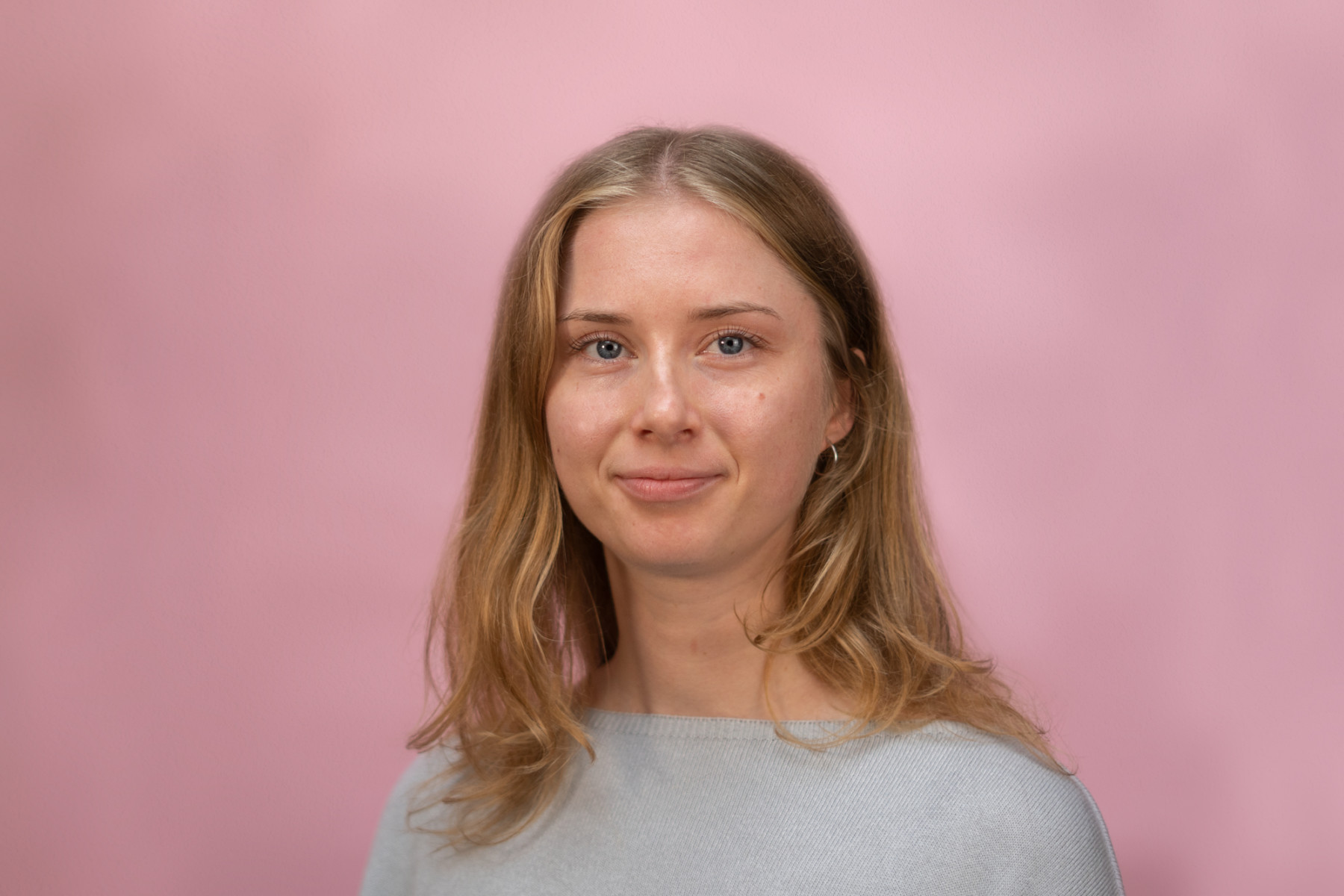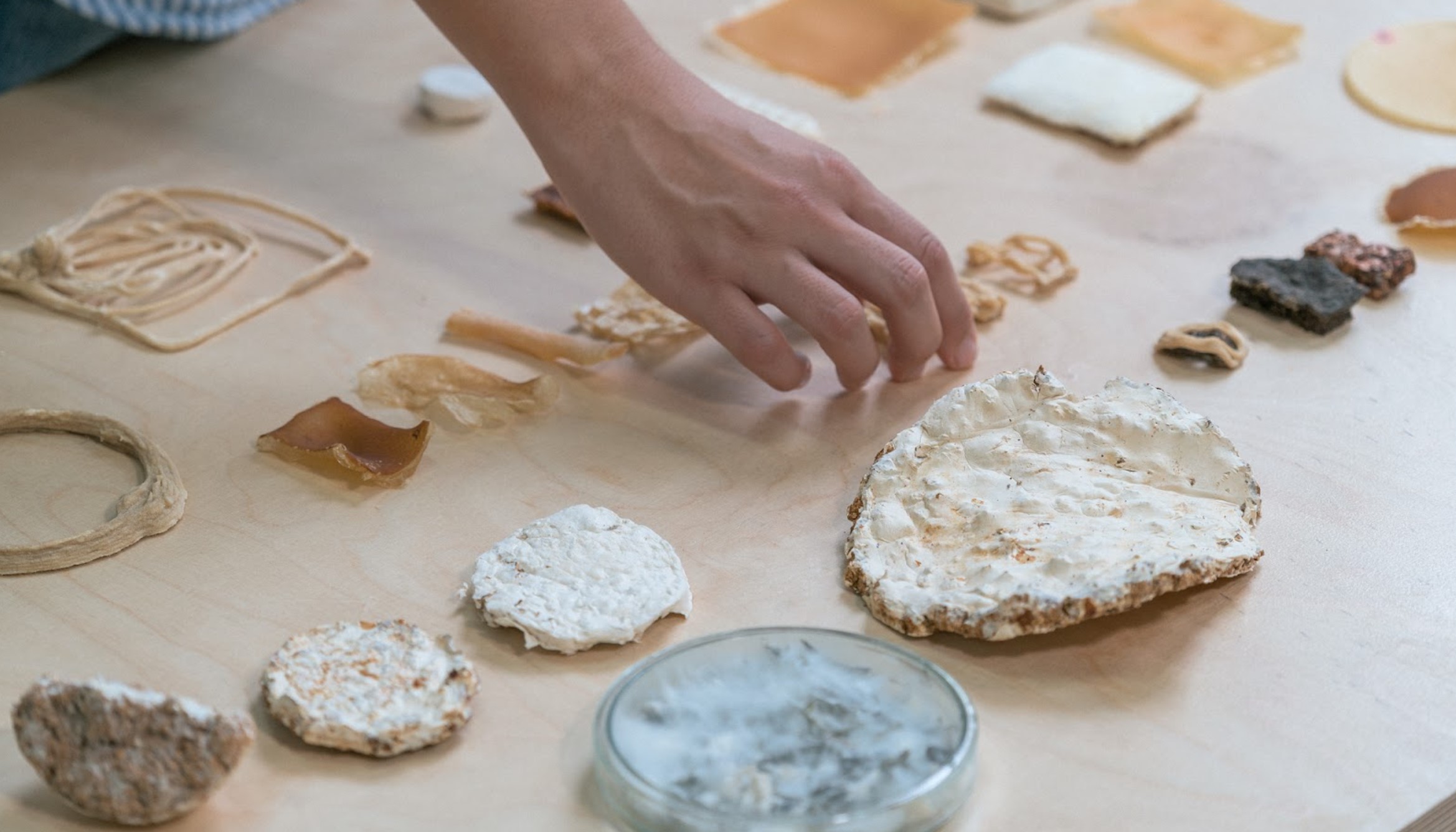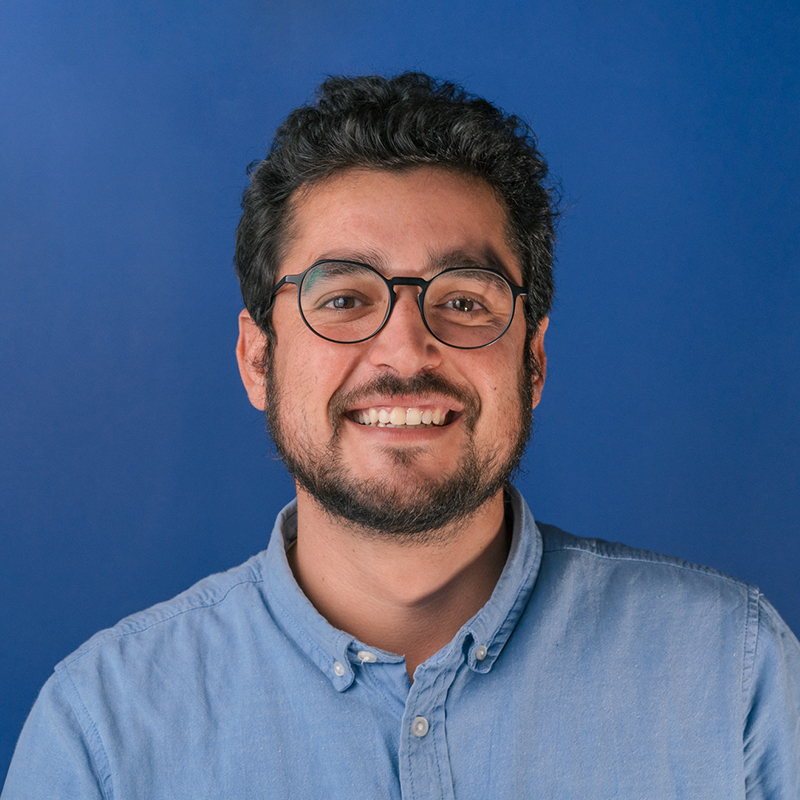Syllabus⇝
This course will introduce students to the world of bio-based materials and upcycling, with a focus on hands-on exploration and prototyping. Students will learn about the principles of biomaterials, including how to grow and manipulate them, and will have the opportunity to prototype their own projects using a range of techniques such as composites, modeling and casting, and 3D printing.
For many years designers thought of materials as something to choose from a catalog, a patented formula developed in giant laboratories. However, our home kitchen offers tonnes of possibilities to start the design process from material sources such as waste and use systemic design practices to connect it with the local socio-economic context.
The course will also include a section on remixing in context, where students will learn how to connect their material choices and upcycling projects with the local socio-economic context.
Deliverables⇝
-
Develop an understanding of the principles of biomaterials and the potential for using waste materials in upcycling projects.
-
Understanding the potential for using locally sourced and waste materials in the design process, and the role of designers in connecting their work to the local socio-economic context.
-
Explore a range of techniques for prototyping and manipulating bio-based materials.
-
Connect material choices and upcycling projects with the local socio-economic context through the use of systemic design practices.
-
Create and present a final project that demonstrates the use of bio-based materials and upcycling techniques.
Faculty⇝

Petra Garajová
Materials & Textiles
Petra is a Slovak designer with a background in architecture, exploring the boundaries of material science, digital manufacturing and textiles. Currently she is working in Fab Lab Barcelona as a Fabricademy Local Instructor. Her main interest arises from biology and waste materials which lie on the borders of various artistic disciplines. Nowadays, she is also a co-founder of the Experimental Design platform which is using fashion as a tool to reshape the connection between nature, soft materials and the human body using new technologies. Petra holds a Master’s degree in Arts and Architecture at the Academy of Arts Architecture and Design in Prague. After her architectural studies she graduated from Fabricademy – Textile and Technology Academy in Fab Lab Barcelona IAAC. During her studies she was part of Shemakes.eu European project as an Ambassador between Fab Lab Barcelona and TextileLab Iceland working on the Lab to Lab project – Rethinking Wool. Her Fabricademy final project was awarded the Young Scientist Award 2022.
Eduardo Chamorro is an architectural technologist, additive manufacturing expert and researcher, focusing on digital fabrication, materials, robotics and emerging technologies.
He is currently a PhD candidate at Swinburne University (Melbourne, Australia) in High performance composites additive manufacturing for architecture.
Works as faculty and researcher at FabLab Barcelona & IAAC (Institute for Advanced Architecture of Catalonia) in Barcelona, Spain as faculty in the Master in Design for Emergent Futures (MDEF), Master for Advanced Architecture (MAA), Master in Advanced Ecological Buildings (MAEB), 3D Printing in Architecture (3DPA), FabAcademy at IAAC FabLab Barcelona. For him, working in a multi-scalar environment must be the priority of architects nowadays. His research focuses on the implementation of additive manufacturing technologies along different architectural scales imaging multiple processes and materialities.
Eduardo holds a Master's Degree in Architecture from CEU San Pablo University (Spain), a Fab Academy diploma in Digital Fabrication offered by the Fab Lab Network and a Master's Degree in Advanced Architecture from IAAC (Spain), with a specialisation in digital fabrication, materiality novel design methodologies. He holds as well a Spanish architectural licence.
Moreover, he has worked as Fab Lab Seoul director, researcher at several architecture studios, professor of computational design and fabrication at CEU University and advisor for various architecture collectives. He is also a regular collaborator at Fab Lab Madrid. He is always seeking innovative architecture that attempts to solve and adapt to social needs. He has also been a tutor for the Master of Science in Computational and Advanced Design (MSc CAD) at Design Morphine - UACEG (University of Architecture, Civil Engineering and Geodesy).

